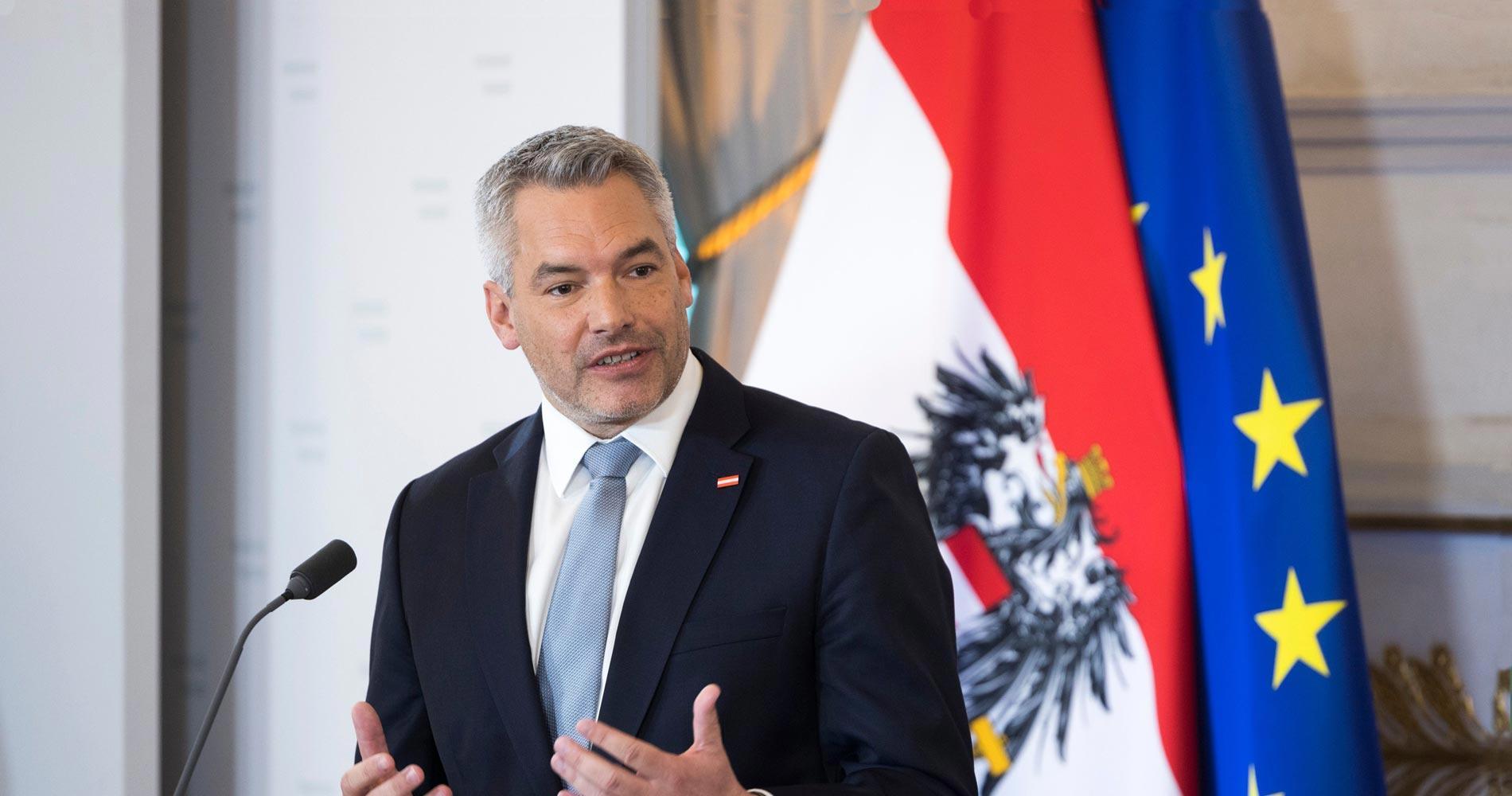Austrian Chancellor Karl Nehammer re-stated in March 2023 Austria’s commitment regarding neutrality. The small opposition party NEOS is demanding that Austria relinquish its neutrality and join NATO. Neutrality has served Austria well and has proven to be both beneficial and useful. Neutral states have an important role to play, especially in times of war and conflict. Austria will not be joining other ‘neutral’ countries Sweden and Finland, who want to join NATO asap.
Heinz Gärtner, 13 March 2023
Austrian Chancellor Karl Nehammer re-stated Austria’s status and commitment regarding neutrality. In his “Österreich 2030” (Austria 2030) plan, which he presented on 10 March 2023, the Chancellor stated that “neutrality is a fixed component” of Austria’s security strategy. It has served Austria well since World War II.
There are many definitions of neutrality which have evolved since the 19th century. After the start of the Cold War, the focus of the definition of neutrality shifted from the concept of neutrality as non-participation in foreign wars and military conflicts to non-participation in military alliances. Neutrality has never been a necessary condition for peace, but it has historically avoided one of the possible causes of war: participation in wars waged by military alliances. Alliances include a pledge by member states, individually and collectively, to come to the aid of other members, including by militarily, if they are threatened or attacked from outside the alliance. A neutral state cannot make this promise to take part in another state’s war. However, it also reserves the right not to have to submit to such a demand. Thus, membership in NATO is ruled out for a neutral state, since its founding treaty contains an explicit obligation to provide military assistance. This obligation was extended to Chinese threats in NATO’s latest strategic concept.
For neutrality to be respected by the great powers, a neutral state must meet two conditions: the status of neutrality must be credible and predictable: and the neutral state must be politically useful. Credibility means that a neutral state must communicate its neutrality unequivocally even in peacetime. It must also not pose a threat, for example it cannot join an alliance perceived as hostile by one side or convey this intention. Credibility is also underlined by the fact that the neutral state is armed. US President Dwight Eisenhower, for example, only agreed to Austrian neutrality on the condition that Austria could defend its neutrality.
The neutral state can prove it is beneficial and useful by assuming the function of a buffer state or by offering good services and acting as an intermediary in the broadest sense. The neutral state can thus acquire very good security guarantees. Since the Cold War era, the neutrals have taken on both roles. On the one hand, the buffer function: with the intention announced by Finland and Sweden in 2022 to join NATO, they chose alliance membership over neutrality. In doing so, they have relinquished their role as buffer states vis-à-vis NATO, which was recognized by both the Soviet Union and Russia. They will now be classified as enemy states by Russia. Upon joining NATO, Finland will be treated as part of its eastern flank, i.e. as a frontline state, which will include the forward positioning of its weapons.
Neutral states can provide their “good offices”, such as offering their territory and their mediation in order to avoid and resolve conflicts. They can be facilitators or intermediaries to maintain economic and diplomatic exchanges. For example, the neutral and non-aligned states of Europe have taken on this task within the framework of the CSCE process since the 1970s.
Great powers want established neutrality to be respected by other great powers. US President Eisenhower signaled defending neutral Austria under threat, although Austria is not part of NATO. Austria, which helped refugees from Hungary’s uprising of 1956, was accused by the Soviet Union of running training camps for the insurgents and smuggling arms across the Hungarian border. Moscow would not accept that kind of neutrality. The US State Department threatened that “an attack by the Soviet Union on Austria’s neutrality would mean World War III”.
Austrian Chancellor Bruno Kreisky argued in this tradition when he helped settle many of the international organizations in Vienna. This happened at the peak of the Cold War involving mutual nuclear threats from the US and the Soviet Union. Kreisky saw a usefulness to great powers for neutral Austria to establish international intergovernmental organizations in Vienna and thus a certain guarantee against a nuclear attack. However, in the sense of “engaged neutrality”, neutral states should also take a stand, as they are not value-neutral and must not be. On the contrary, “engaged neutrality” means taking a stand on serious human rights violations, genocide and war. However, neutral states are not forced to take over the positions of great powers or alliances. Unlike alliances, neutral states do not pose a threat for large powers.
Engaged neutrality is thus the opposite of not taking a stand. It can make a valuable contribution to mediation and de-escalation in times of ever more acute confrontations. It means getting involved whenever possible and staying out whenever necessary.
Picture: On 2 October 2022, the ceremony marking the 120th birthday of Leopold Figl took place in the Federal Chancellery. The picture shows Federal Chancellor Karl Nehammer delivering the ceremonial address. © Christopher Dunker/BKA
Other Articles Which Might Interest You
Engaged Neutral States
Turkey’s Stance on Sweden’s NATO Bid: “All Politics are Local”







